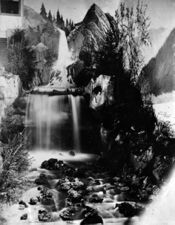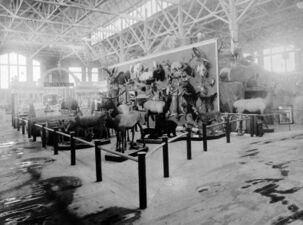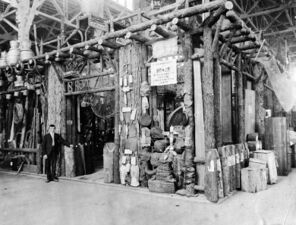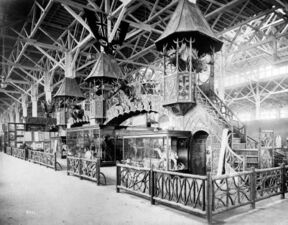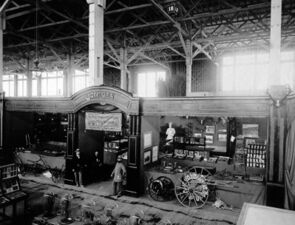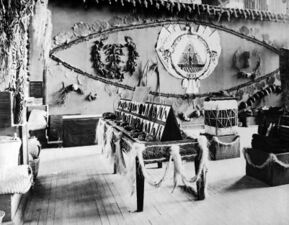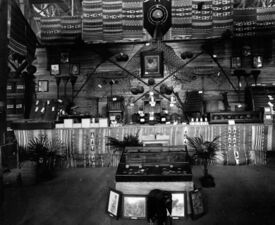Palace of Forestry Fish & Game: Difference between revisions
No edit summary |
No edit summary |
||
| Line 62: | Line 62: | ||
</gallery> | </gallery> | ||
==See also== | ==See also== | ||
[[ | [[US_Government_Fisheries]] | ||
==Notes== | ==Notes== | ||
Revision as of 18:58, 1 December 2022
 | |
| Location | Agriculture Area |
|---|---|
| No. of Buildings | 1 |
| Construction | |
| Construction Cost | $171,000 ($5.16 million in 2021) |
| Architecture | |
| Architect | E.L. Masqueray |
| Dimensions | 300' x 600' |
The Palace of Forestry, Fish & Game was the smallest official Palace. Located in the Agriculture Area, near the Place of Nations, the building showcased displays of outdoor hunting and fishing.
Before the Fair
You could see 20 foot long snake skins to canning techniques to preserve fish. Taxidermy exhibits were quite numerous.
Notable Displays
Brazil exhibited a large variety of trees and woods including 83 types of bark. Rubber trees and giant emperor moths also graced their exhibit.
Kentucky, Tennessee and Arkansas headed the domestic exhibits of fine woods.
Canada showed a variety of game from their country including eight live beavers.
Both Montana and Colorado displayed large collections of stuffed animals.
Japan showed a life-sized silk screen painting of two Bengal tigers walking in the snow. This won a gold medal display award.
There was a huge historical weapons exhibit at the western end of the palace. The collection included: blunderbusses, flintlocks and bow guns, to state of the art breach-loading army rifles. The highlight of the exhibit was a 400 year old Cookson gun inlaid with silver and gems. The collection was valued at $50,000 ($5.16 million today).
Description
After the Fair
Gallery
-
Alaska
-
Alaska
-
Camp Adirondack
-
Colorado
-
Montana
-
Roosevelts Cabin
-
Brazil
-
Canada
-
Germany
-
Bust of Emperor William
-
Close-up Bust of Emperor William
-
Honduras
-
Siam
-
Funstein Bros
